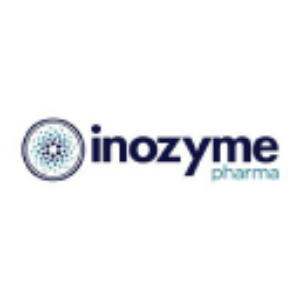Inozyme Pharma Publishes Preclinical Data Supporting INZ-701 as a Potential Therapy for a Broad Range of Serious Rare Diseases Impacting Bone Health and Blood Vessel Function
Rhea-AI Summary
Inozyme Pharma (Nasdaq: INZY) has published preclinical data in the journal Cells, supporting the potential of INZ-701, their lead ENPP1 enzyme replacement therapy (ERT) candidate, to treat a broad range of rare diseases affecting bone health and blood vessel function. The study demonstrates INZ-701's ability to inhibit intimal proliferation in both ENPP1-deficient and wild-type mice, suggesting potential applications beyond traditional ERT.
Key findings show that INZ-701 increases levels of inorganic pyrophosphate (PPi) and adenosine, addressing deficiencies in the PPi-Adenosine Pathway. This pathway is critical for regulating bone health and blood vessel function. The research reveals ENPP1's role in adenosine production, explaining its dual action in preventing abnormal mineralization and inhibiting intimal proliferation. These results position INZ-701 as a promising therapeutic for multiple rare diseases driven by PPi-Adenosine Pathway disruptions.
Positive
- Preclinical data supports INZ-701's potential to treat a broad range of rare diseases affecting bone health and blood vessel function
- INZ-701 demonstrated ability to inhibit intimal proliferation in both ENPP1-deficient and wild-type mice
- Research reveals ENPP1's role in adenosine production, explaining its dual action in preventing abnormal mineralization and inhibiting intimal proliferation
- Results suggest INZ-701 may have broader therapeutic applications beyond traditional enzyme replacement therapy
Negative
- None.
News Market Reaction 1 Alert
On the day this news was published, INZY gained 1.58%, reflecting a mild positive market reaction.
Data tracked by StockTitan Argus on the day of publication.
- Treatment with INZ-701 shown to prevent intimal proliferation in both ENPP1-deficient and wild-type mice, supporting its potential therapeutic application beyond traditional ERT -
BOSTON, July 25, 2024 (GLOBE NEWSWIRE) -- Inozyme Pharma, Inc. (Nasdaq: INZY) (“the Company” or “Inozyme”), a clinical-stage biopharmaceutical company developing novel therapeutics for rare diseases that affect bone health and blood vessel function, today announced the publication of preclinical data supporting the potential of INZ-701, the Company’s lead ENPP1 enzyme replacement therapy (ERT) development candidate, to treat a broad range of diseases mediated by the PPi-Adenosine Pathway, which regulates mineralization and intimal proliferation (the overgrowth of smooth muscle cells inside blood vessels). The article titled, “Inhibition of Vascular Smooth Muscle Cell Proliferation by ENPP1: The Role of CD73 and the Adenosine Signaling Axis”, published in the journal Cells can be accessed via this link.
“The data published in Cells highlights the potential of INZ-701 to inhibit intimal proliferation, an important advancement for treating rare diseases driven by pathological dysregulation of vascular smooth muscle cell overgrowth,” said Yves Sabbagh, Ph.D., Chief Scientific Officer of Inozyme Pharma and one of the senior authors on this publication. “INZ-701’s ability to address disruptions in the PPi-Adenosine Pathway positions it as a promising therapeutic candidate, offering hope across multiple rare diseases.”
Overview of Findings
The PPi-Adenosine Pathway is critical for regulating bone health and blood vessel function. The ENPP1 enzyme is a vital component of this pathway and plays an essential role in generating inorganic pyrophosphate (PPi), a key regulator of mineralization, and adenosine, a key regulator of intimal proliferation. Disruptions in this pathway impact the levels of these molecules, leading to severe musculoskeletal, cardiovascular, and neurologic conditions, including ENPP1 Deficiency, ABCC6 Deficiency, calciphylaxis, and ossification of the posterior longitudinal ligament (OPLL).
INZ-701 is designed to increase PPi and adenosine, addressing deficiencies in these molecules and offering the potential to treat multiple rare diseases driven by disruptions in the PPi-Adenosine Pathway.
The Cells publication highlights the following preclinical findings with INZ-701 (ENPP1-Fc):
In vitro Experiments:
- ENPP1-Fc was tested on vascular smooth muscle cells (VSMCs), which are the major cells in the walls of blood vessels.
- Adding ENPP-1-Fc and ATP to VSMCs led to the production of AMP, which was subsequently converted to adenosine, reducing cell proliferation.
- Both AMP and adenosine independently inhibited VSMC growth.
- Blocking the CD73 enzyme, which converts AMP to adenosine, reduced the accumulation of adenosine, and suppressed the anti-proliferative effects of ENPP1/ATP.
In vivo Experiments:
- In a mouse model where the carotid artery was ligated, treatment with INZ-701 prevented or reduced intimal proliferation in a prophylactic or therapeutic setting, respectively, in both ENPP1-deficienct and wild-type mice.
- These results suggest a certain level of adenosine is necessary to prevent or reduce intimal proliferation.
Conclusions:
- In addition to producing PPi, ENPP1 also plays an important role in the production of adenosine, revealing the mechanisms by which ENPP1 prevents both abnormal mineralization and inhibits intimal proliferation.
- These results suggest that INZ-701 may have broader therapeutic applications beyond traditional enzyme replacement therapy.
About INZ-701
INZ-701, an ENPP1 Fc fusion protein, is an enzyme replacement therapy (ERT) in development for the treatment of rare diseases linked to the PPi-Adenosine Pathway. INZ-701 metabolizes adenosine triphosphate (ATP) to generate inorganic pyrophosphate (PPi), a natural inhibitor of mineralization, and adenosine monophosphate (AMP), which can be processed to phosphate and adenosine, the latter being a natural inhibitor of intimal proliferation. In preclinical studies, INZ-701 has shown potential to prevent pathologic mineralization and intimal proliferation, which can drive morbidity and mortality in devastating disorders such as, ENPP1 Deficiency, ABCC6 Deficiency, calciphylaxis and ossification of the posterior longitudinal ligament (OPLL). Clinical data to date have demonstrated that INZ-701 was generally well tolerated, exhibited a favorable safety profile, and meaningfully increased PPi levels in multiple clinical trials.
About Inozyme Pharma
Inozyme Pharma is a pioneering clinical-stage biopharmaceutical company dedicated to developing innovative therapeutics for rare diseases that affect bone health and blood vessel function. Our expertise lies in the PPi-Adenosine Pathway, where the ENPP1 enzyme generates inorganic pyrophosphate (PPi), which regulates mineralization, and adenosine, which controls intimal proliferation (the overgrowth of smooth muscle cells inside blood vessels). Disruptions in this pathway impact the levels of these molecules, leading to severe musculoskeletal, cardiovascular, and neurological conditions, including ENPP1 Deficiency, ABCC6 Deficiency, calciphylaxis, and ossification of the posterior longitudinal ligament (OPLL).
Our lead candidate, INZ-701, is an ENPP1 Fc fusion protein enzyme replacement therapy (ERT) designed to increase PPi and adenosine, enabling the potential treatment of multiple diseases caused by deficiencies in these molecules. It is currently in clinical development for the treatment of ENPP1 Deficiency, ABCC6 Deficiency, and calciphylaxis. By targeting the PPi-Adenosine Pathway, INZ-701 aims to correct pathological mineralization and intimal proliferation, addressing the significant morbidity and mortality in these devastating diseases.
For more information, please visit https://www.inozyme.com/ or follow Inozyme on LinkedIn, X, and Facebook.
Contacts
Investors:
Inozyme Pharma
Stefan Riley, Senior Director of IR and Corporate Communications
(857) 330-8871
Stefan.riley@inozyme.com
Media:
SmithSolve
Matt Pera
(973) 886-9150
Matt.pera@smithsolve.com








